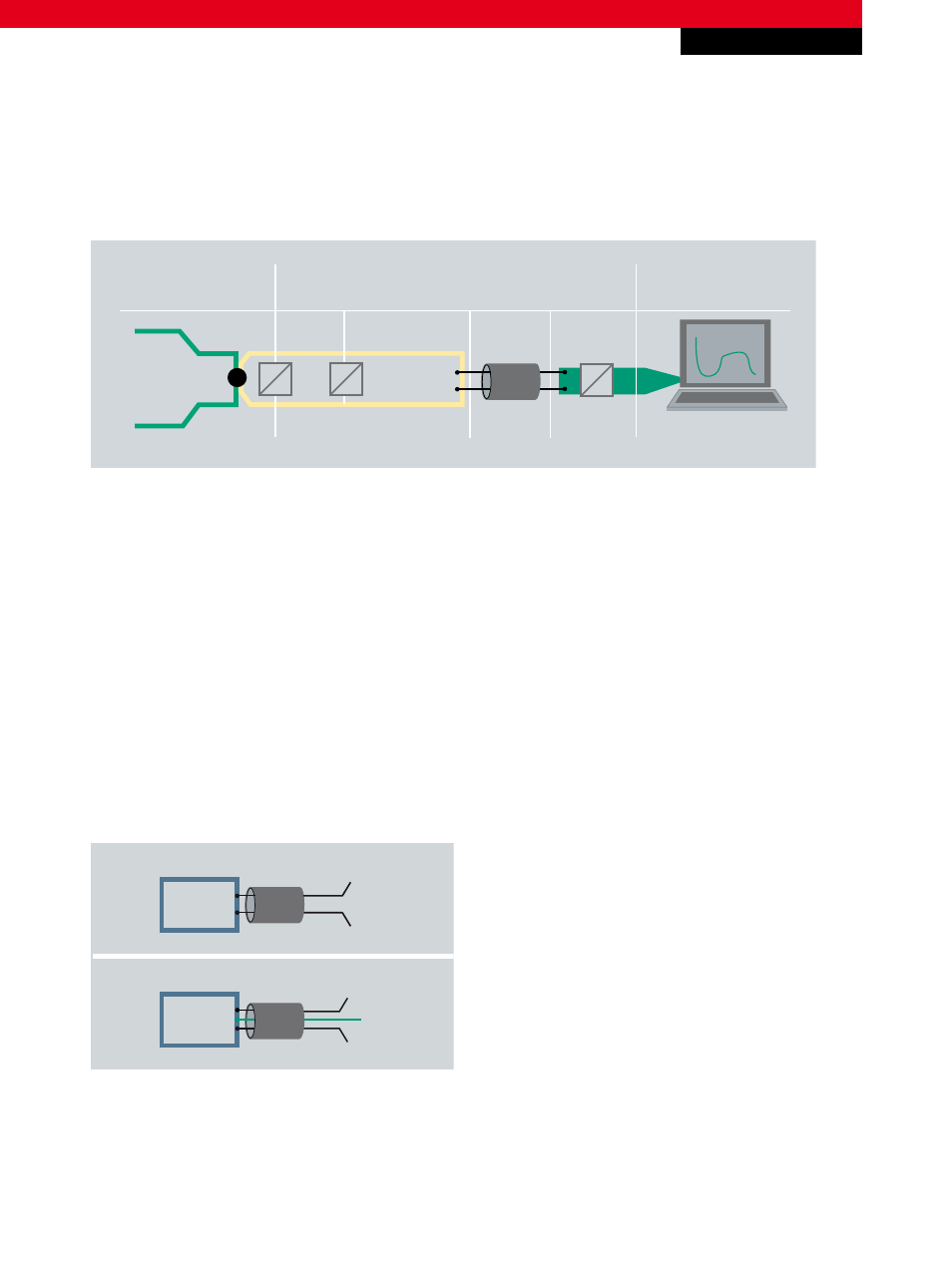BECKHOFF DK9222-0112-0059 User Manual
Page 2

I/O
Measuring analog signals
Application Note DK9222-0112-0059
Process
Sensor
Physical quantity
Digital variable
Process data format
Measured
value
Analog
value
Analog
standard signal
Signal
transmission
Analog
input
Control
Fig. 1 The path of an analog process value: from the field into the controller
In control technology, a sensor can also contain further functional elements (bus connection, integrated scaling of the
measured value, pattern recognition, etc.). It is then usually called a “smart” sensor.
Types of analog sensor connections
Sensors that directly connect to the analog inputs of the controller (‘classic analog sensors’) can be manufactured with a 4-, 3-
or 2-wire configuration, depending on the power supply concept and signal transmission method.
4-wire sensors conduct signal and power each via two wires. The wiring expenditure is high with this type of connection.
3-wire sensors use two wires for the power supply and output the signal via a separate wire. The reference potential is the
GND wire.
2-wire sensors conduct the signal and power supply via one (common) supply wire. The 2-wire technique requires little wiring
expenditure and represents the state of the art in measuring transducers for field and sensor head mounting.
2-wire sensor
3-wire sensor
sensor
signal
GND
U
B
sensor
signal -
signal +
Fig. 2 2-wire sensor with power and signal on one wire, 3-wire sensor with separate wires for power and signal
Methods of transmission of analog process values
In control technology the signal levels for the transmission of the sensor signals are standardized in order to ensure the
most extensive compatibility of sensors and evaluation units possible, without restricting the level of freedom in product
New Automation Technology
Beckhoff
2
For application notes see disclaimer on the last page
